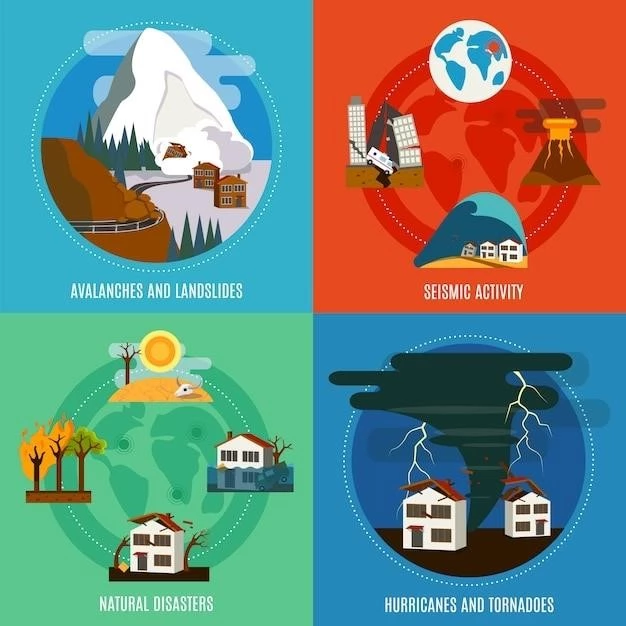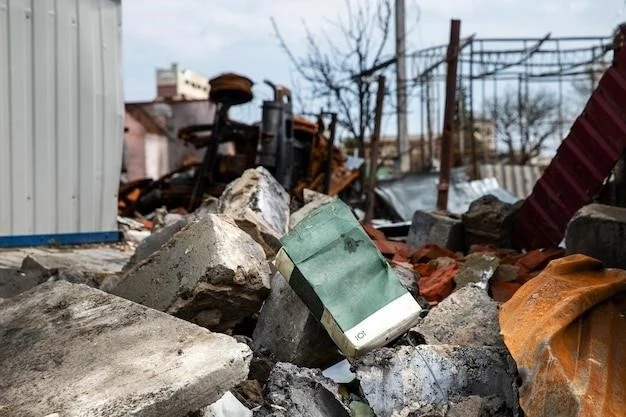Natural disasters are a stark reality of our world‚ capable of inflicting immense damage and disruption to human lives‚ infrastructure‚ and economies. From hurricanes and earthquakes to wildfires and floods‚ these events pose significant challenges to our well-being and global stability. This article delves into the multifaceted economic impact of natural disasters‚ exploring both the immediate consequences and the long-term ramifications.
Direct Economic Costs
The most apparent economic impact of natural disasters is the direct physical damage they inflict. This can include:
- Destruction of Infrastructure: Roads‚ bridges‚ power lines‚ communication networks‚ and other critical infrastructure are often severely damaged or destroyed‚ disrupting transportation‚ energy supply‚ and communication systems.
- Property Loss: Homes‚ businesses‚ and agricultural lands can be devastated‚ leading to substantial financial losses for individuals‚ communities‚ and industries.
- Business Interruption: Natural disasters can force businesses to shut down operations‚ resulting in lost revenue‚ supply chain disruptions‚ and unemployment.

Indirect Economic Costs
Beyond the immediate physical damage‚ natural disasters trigger a cascade of indirect economic consequences:
- Reduced Productivity: Disruptions to transportation‚ power outages‚ and displacement of workers can severely hamper productivity across various sectors.
- Supply Chain Disruptions: Damage to transportation infrastructure and production facilities can disrupt supply chains‚ leading to shortages of goods‚ increased prices‚ and delays in manufacturing and distribution.
- Health Impacts: Natural disasters can cause injuries‚ spread diseases‚ and create mental health challenges‚ imposing significant burdens on healthcare systems and impacting workforce participation.
- Displacement and Migration: Displaced populations may struggle to find housing‚ employment‚ and access to essential services‚ putting strain on receiving communities and economies.
Long-Term Economic Effects
The economic impact of natural disasters can extend far beyond the immediate aftermath:
- Reduced Economic Growth: The costs of rebuilding and recovery can divert resources from productive investments‚ hindering long-term economic growth and development.
- Fiscal Strain: Governments face significant financial burdens in providing disaster relief‚ rebuilding infrastructure‚ and supporting affected populations‚ potentially leading to increased debt or reduced spending in other areas.
- Increased Insurance Premiums: The frequency and severity of natural disasters can lead to higher insurance premiums for businesses and individuals‚ impacting affordability and economic activity.
- Social Inequality: Natural disasters often disproportionately impact vulnerable populations‚ exacerbating existing social and economic inequalities.
Mitigation and Resilience
Given the substantial economic consequences of natural disasters‚ investing in mitigation and resilience measures is crucial:
- Infrastructure Improvements: Strengthening infrastructure to withstand extreme events can reduce the scale of damage and disruption.
- Early Warning Systems: Effective early warning systems can provide crucial time for preparedness‚ evacuation‚ and minimizing losses.
- Climate Change Adaptation: Addressing climate change is essential to mitigating the increasing frequency and intensity of extreme weather events.
- Insurance and Risk Transfer: Promoting insurance coverage and developing innovative risk transfer mechanisms can help individuals‚ businesses‚ and governments manage financial risks.

Conclusion
Natural disasters pose a significant threat to global economic stability and human well-being. The economic impact extends far beyond immediate physical damage‚ encompassing a complex web of consequences that can hinder long-term growth and development. Investing in mitigation‚ preparedness‚ and resilience measures is essential to reduce the human and economic toll of these events. By adopting proactive strategies‚ we can strive to create a more sustainable and resilient future in the face of natural disasters.










